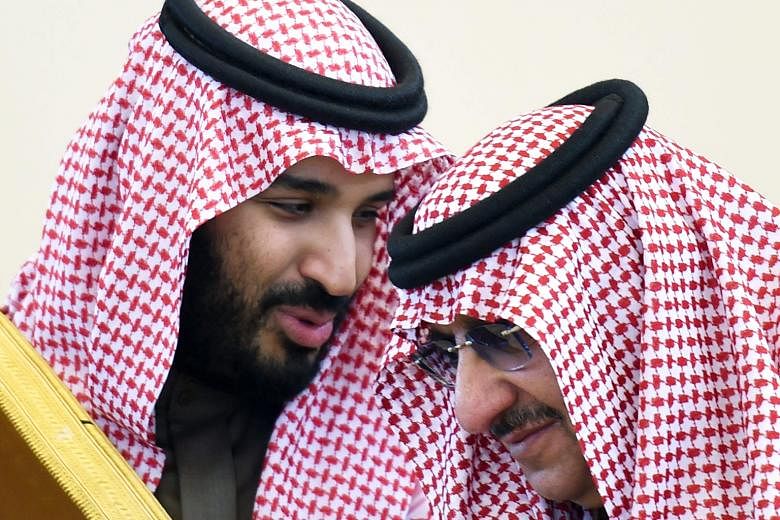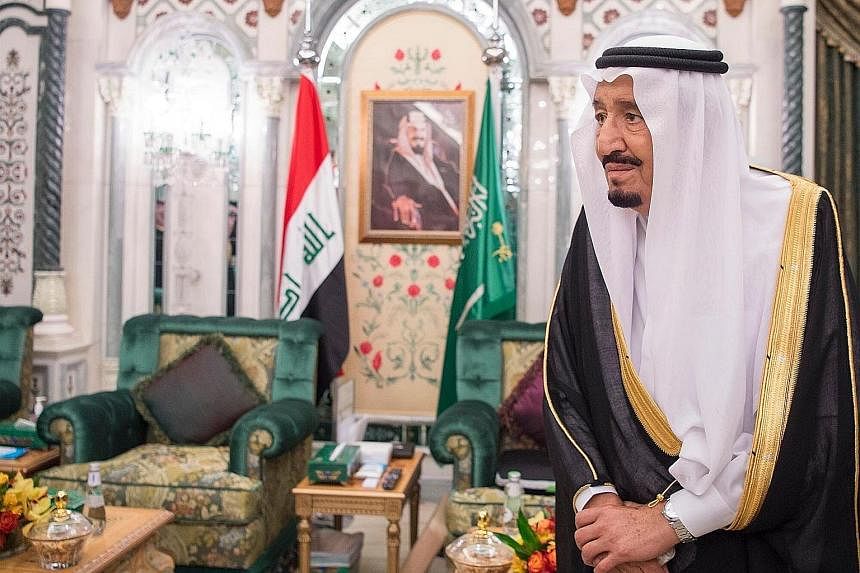CROWN PRINCE MOHAMMED BIN SALMAN
Saudi Arabia's hard-charging prince holds unusual power for a man of just 31, so much so that diplomats nickname him "Mr Everything".
Prince Mohammed bin Salman emerged from relative obscurity when his father ascended the throne in 2015, and has since accumulated vast powers, serving as defence minister, overseeing the state oil company and undertaking an effort to overhaul the economy.
His supporters praise him as offering a hopeful vision for the kingdom's future, especially for its large youth population, more than half of whom are under 25. His critics have called him rash, inexperienced and power-hungry.
Prince Mohammed is the main proponent of a wide-ranging plan, dubbed Vision 2030, to bring social and economic change to the oil-dependent economy of a country where women's rights are among the most restricted in the world.
Among his most prominent positions is his role as chairman of the Council of Economic and Development Affairs, which coordinates economic policy.
In a profile last year, Bloomberg Businessweek said the prince works 16-hour days and draws inspiration from the writings of wartime British prime minister Winston Churchill and Sun Tzu's The Art Of War.
A law graduate from Riyadh's King Saud University, he is the father of two boys and two girls and - unlike other members of the royal family - has married only once. He told Bloomberg that although Islam allows for multiple marriages, modern life does not leave the time.
KING SALMAN
The 81-year-old, who cuts an imposing figure, became king on Jan 23, 2015, after his half-brother Abdullah died of pneumonia at the age of 90.
Before becoming defence minister in 2011, he had spent nearly 50 years as governor of Riyadh province, a position that meant he had more to do with foreign governments than many senior royals.
King Salman believes that the social and cultural reforms instigated by King Abdullah had to move slowly for fear of a conservative backlash.
Although he is a devout Muslim - having been taught in the "princes' school" set up in the palace by the imam of the Grand Mosque of Mecca to signal the importance attached to the centrality of pure Islamic belief - King Salman is reputed to be a moderate and relatively outward-looking.
He has argued against the introduction of democracy in the kingdom, citing regional and tribal divisions, but said that a solution to the Palestinian-Israeli conflict was necessary for Middle East stability.
PRINCE MOHAMMED BIN NAYEF
The 57-year-old nephew of the king was the kingdom's security chief for many years, and has good relations with the kingdom's Western allies.
As deputy prime minister and interior minister, Prince Mohammed bin Nayef headed the counter-terrorism portfolio, and was widely respected by Saudis and foreign allies for his strong stance against extremist militants and for dismantling Al-Qaeda networks in the kingdom.
In fact, Al-Qaeda paid him the compliment of treating him as one of its most dangerous enemies in 2009, when it sent an assassin to try killing him. A militant approached the prince during a Ramadan gathering - presenting himself as someone who could help get other militants surrender. He then blew himself up with a bomb concealed in his underwear.
The prince narrowly survived the attack, sustaining only slight injuries. The Saudi government official characterised his narrow escape as a "miracle".
Yesterday's decrees removed the prince both from his place as next in line to the throne and from his post as interior minister.
BLOOMBERG, REUTERS, AGENCE FRANCE-PRESSE


